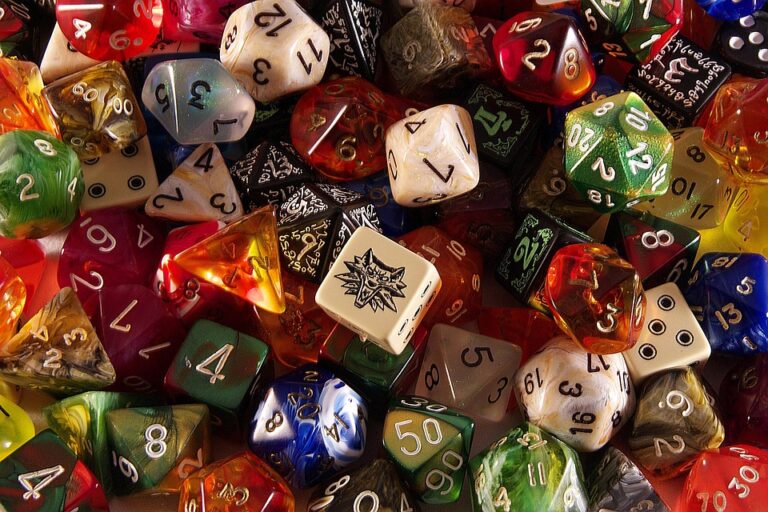The Evolution of Role-Playing Games: From Tabletop to Digital Worlds
Role-Playing Games (RPGs) have transformed dramatically from their humble beginnings as tabletop games to fully immersive digital ecosystems. This article explores the evolution of RPGs, showcasing how they have adapted to changing technologies and player expectations while maintaining the core elements that define them.
A Brief History of Tabletop RPGs
The roots of Role-Playing Games can be traced back to the early 1970s, primarily with Dungeons & Dragons (D&D), which was first published in 1974. This game introduced players to collaborative storytelling, character development, and complex rules that created an immersive experience. The appeal of tabletop RPGs lies in their ability to foster imagination and social interaction among players, often taking place over long hours spent gathered around a table.
As the tabletop genre expanded during the 1980s and 1990s, games like Call of Cthulhu and Shadowrun emerged, offering diverse settings and narratives. According to a 2023 report by the Entertainment Software Association, the tabletop RPG market has grown to about $2 billion, indicating a resurgence in interest in traditional gaming.
The Transition to Digital: The Early Days
The digital transformation of Role-Playing Games began in earnest in the late 1980s and 1990s, coinciding with the rise of personal computers and gaming consoles. Early RPGs such as Ultima and Final Fantasy paved the way for immersive storytelling and strategic gameplay. These titles had a massive impact on how players interacted with narratives and characters, presenting a marriage of technology and traditional RPG elements.
The Rise of MMORPGs
The late 1990s introduced a new genre within the RPG category: Massively Multiplayer Online Role-Playing Games (MMORPGs). EverQuest (1999) and later, World of Warcraft (2004) revolutionized the gaming landscape by allowing thousands of players to interact in shared digital worlds. According to Statista, as of mid-2023, the MMORPG segment has over 34 million active users worldwide, demonstrating immense popularity.
Modern Role-Playing Games: A Fusion of Genres
Today, RPGs no longer fit neatly into one box. They have blended with various genres, enriching the gaming experience. Titles like The Witcher 3: Wild Hunt and Cyberpunk 2077 combine RPG elements with open-world gameplay, allowing players to make choices that significantly affect the game’s outcome. This evolution reflects a broader trend in gaming towards player agency and realism.
RPG Mechanics in Other Genres
Many non-RPG games have integrated RPG mechanics to enhance player engagement. For example, the open-world adventure game Zelda: Breath of the Wild incorporates character progression and questing familiar to RPG players. This hybridization exemplifies the flexibility of RPG elements and their universal appeal.
The Role of Technology
Today’s advancements in technology continue to shape the future of Role-Playing Games. The advent of virtual reality (VR) and augmented reality (AR) technologies is set to further enhance the immersive experience. Games like Half-Life: Alyx not only demonstrate the potential of VR but also highlight how RPG mechanics can be adapted to these platforms.
Community Engagement and Streaming Culture
The community aspect of Role-Playing Games has also evolved dramatically with the rise of social media and platforms like Twitch and YouTube. Streaming games has become a norm, leading to increased visibility and engagement among players. According to a 2022 survey from Pew Research, over 90% of gamers have watched game-related content online, which has fostered a community that transcends geographical boundaries.
Additionally, the growth of platforms like Roll20 and Foundry Virtual Tabletop has expanded the horizons of tabletop RPGs, allowing players to engage in immersive gameplay online, maintaining the essence of tabletop experiences while leveraging digital tools.
The Future of Role-Playing Games
As Role-Playing Games continue to evolve, several trends are worth monitoring:
-
Diversity in Storytelling: Increasingly, developers are incorporating diverse narratives that better reflect different cultures, identities, and experiences.
-
AI Integration: As artificial intelligence technology improves, we may see more sophisticated non-playable characters (NPCs) and dynamic storytelling that responds to player choices in real-time.
- Mobile Gaming Growth: With the smartphone becoming a primary gaming device, mobile RPGs are on the rise, appealing to a broader audience and facilitating gaming on the go.
Conclusion
The evolution of Role-Playing Games from tabletop origins to digital realms highlights a culture of adaptability and creativity. With growing trends in technology and community engagement, the future of RPGs looks promising. This dynamic genre continues to captivate audiences, proving itself not just as a mode of entertainment, but also as a cultural phenomenon.
For deeper insights into the world of gaming, explore articles on buzzo.live such as The History of Video Games and How Gaming Impacts Society. Additionally, for more on the tech shaping gaming, check out resources from VentureBeat and Statista.
Suggested Images
- Tabletop RPG session with players – Alt Text: "Tabletop Role-Playing Games in action."
- Digital RPG interface on a gaming console – Alt Text: "Digital Role-Playing Game experience with players."
By diving into the rich history and evolving dynamics of Role-Playing Games, we not only appreciate their past but also anticipate the exciting possibilities the future holds.


